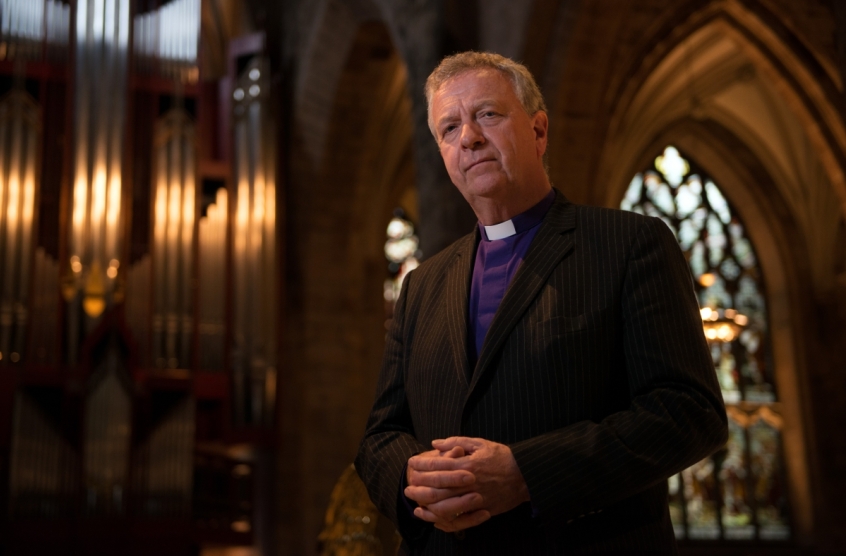The Church of Scotland will 'drift into irrelevance and obscurity' unless it moves its focus away from preserving institutions and traditional services and onto modernising and using smart phones to connect with the young, the former moderator of the church's general assembly has warned.
Dr John Chalmers, who is also an Honorary Chaplain to the Queen, argued the Church of Scotland (the Kirk) is failing to connect with younger generations, and 'the traditional patterns of church life (with which I have been so comfortable) are not going to change that'.

In an article for the December's edition of the Church of Scotland's house magazine, Life and Work, reported by the Telegraph, he called for a radical transformation 'so far reaching that the church of tomorrow may bear little resemblance to the church of recent generations'.
Chalmers said that one of the ways in which the Church could engage with youth 'is now quite literally in our hands'.
He added: 'A whole new generation cannot be separated from their smart phones and tablets. In these there is the power to help to sustain people on their spiritual journey and nourish their inner life.'
Concluding, Chalmers wrote: 'The purpose of God is not about saving denominations or institutions from extinction and the mission of church is about building communities of justice and peace and love – the Church of Scotland can be a part of that mission or it can drift into irrelevance and obscurity.'
According to recent figures, the number of people who regularly attend church services in Scotland has fallen by more than half over the last 30 years.
A census of Scottish Christians found that there are around 390,000 regular churchgoers, down from 854,000 in 1984. The same research showed that 42 per cent of churchgoers were aged over 65.
Chalmers conceded that it was 'hard' for him to call for radical adjustment because the 'hymns and songs of faith' and buildings such as countryside kirks to 'magnificent' cathedrals 'are the core diet of my faith'.
He went on: 'I would rather not see their passing and if I thought they were the recipe for nourishing the faith of a future generation I would put all my efforts into keeping the tradition alive. But it's not the future.'
Chalmers also pointed out that Christianity had begun with a simple 'disciple community' before accumulating 'baggage and paraphernalia' over the centuries, and claimed that the Church spends too much time on 'peripheral stuff', such as arguing about philosophy, and needs to return to the basic task of focusing on building 'relationships' between Scots and Christ's teachings.
He wrote: 'Patterns of living are not going to shift back in time, so, space for spiritual reflection and development now need to take on a different form, and they need to be built into the rhythm of life as it is, not as we would wish it to be.'
He added: 'So, the buildings that we decide to keep, the resources that we decide to develop and the structures that we decide to maintain must, it seems to me, be tested against their capacity for enabling us to be a people who express our faith through love.'













